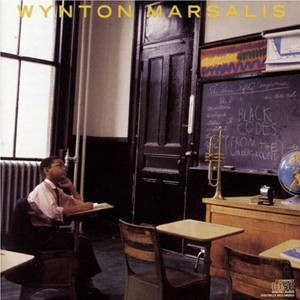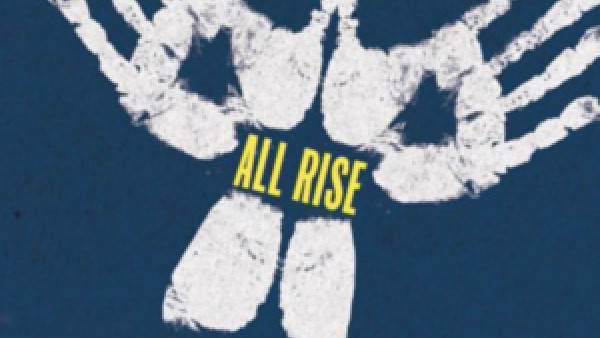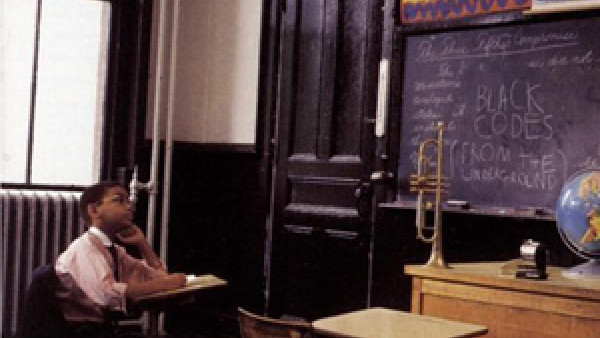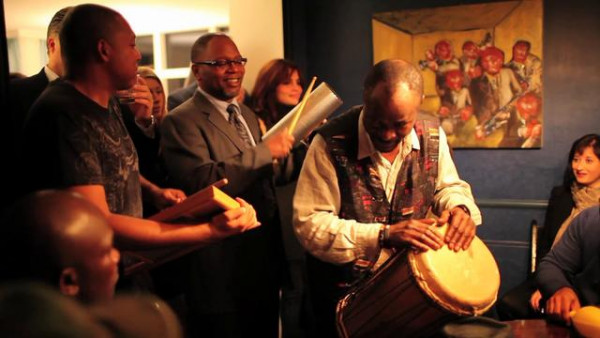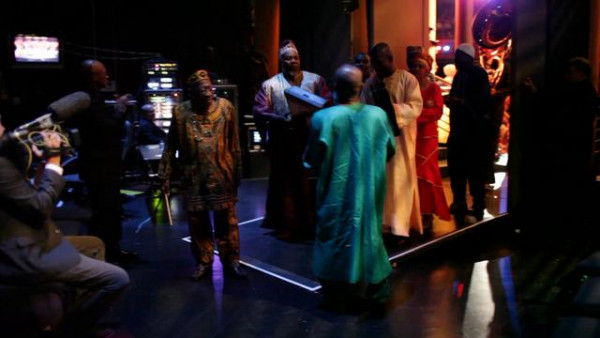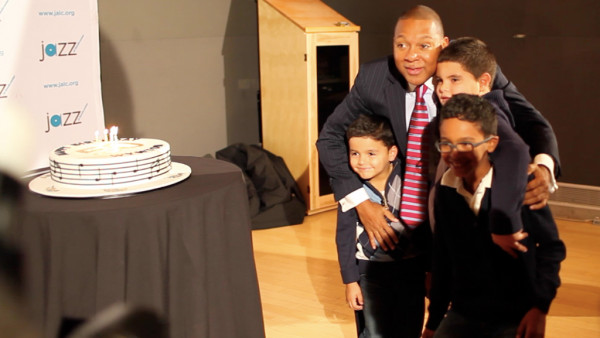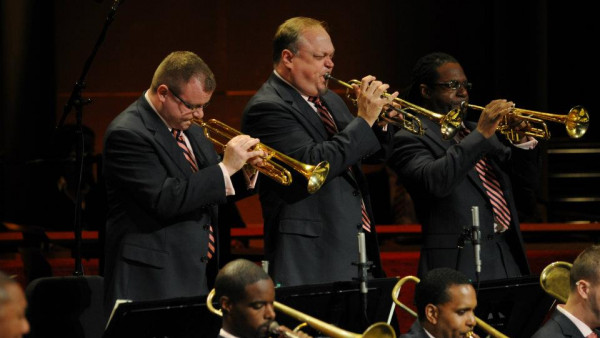A 2006 DownBeat Feature on Wynton Marsalis, Who Turned 50 Yesterday
I couldn’t attend Wynton Marsalis’s four 50th birthday concerts in which he presented repertoire from his 30+ years in the music business. All accounts state — no doubt accurately — that to witness them was an extraordinary experience.
I’ve admired Wynton Marsalis since 1981, when I heard him playing with Herbie Hancock, Ron Carter, and Tony Williams at the Chicago Jazz Festival. The feeling was reinforced not long thereafter, an extraordinary concert at New York’s Public Theater with Alvin Batiste, Ed Blackwell, his father, Ellis Marsalis, his brother Branford, and bassist Mark Helias. A decade before, I’d conducted two extended interviews with Wynton, resulting in this article, which has been on the Internet for a while.
In 2005, DownBeat gave me an opportunity to write an extended feature on Wynton. Unfortunately, for space reasons, they had to cut my final draft — here’s the “directors’ cut,” so to speak.
* * *
That Wynton Marsalis does not think small was evident last November 14th, when Jazz at Lincoln Center threw a thousand-dollar-a-ticket fundraiser to celebrate its Artistic Director’s quarter century in the spotlight.
When the Rose Theater’s lights dimmed, television journalist Ed Bradley, the evening’s host, brought Marsalis on stage to a standing ovation from a crowd primarily of donors from New York’s finance, real estate and media industries, intelligentsia, and eminent entertainers, all attired in black ties, cummerbunds, and designer gowns. Themselves tuxedoed, Bradley and Marsalis turned to a projection of 1979 high school yearbook photo of an Afroed, grinning Marsalis, trumpet in hand. “Pet peeve: Sucking valves,” read the salutation. “Biggest weakness: Bach Stradivarius trumpets.”
Another slide popped up. “Always saying: ‘Be cool, white boy,’” read the top inscription. The crowd laughed uneasily. Marsalis shook his head with a rueful smile, and Bradley joked about youthful indiscretion. The line below stated: “Ambition: ‘Transcend the f****g music being played today.’”
Interrupted by testimonials from various JALC dignitaries, Marsalis spent the next 90 minutes demonstrating how assiduously he had applied himself to the latter aspiration. He played standards with flair—a burnished, elegant “Embraceable You” in duo with Hank Jones; signifying with the mute behind Diana Krall on “East Of The Sun”; stretching out with old piano partner Marcus Roberts on “Cherokee”—but he also prepared a tasting menu of ambitious compositions from the ’90s that reflect his omnivorous interests. The material was decidedly not about conceptualism, nor juxtaposing materials, nor conveying philosophical notions at the expense of human feeling. Rather, Marsalis pursued an aesthetic propagated by his intellectual mentor, Albert Murray, and actualized by painter-collagist Romare Bearden, who expressed a modernist sensibility through deploying an iconography of American vernacular archetypes.
For example, on “Many Gone,” a spiritual from At The Octoroon Balls, the Kronos Quartet conveyed Stravinsky-like harmonies with timbre and attack drawn from American fiddle music. The Lincoln Center Jazz Orchestra displayed its mastery of Ellingtonian erotica behind two Alvin Ailey dancers on “Home: Beyond This Rage,” a vignette from Sweet Release. Gospel diva Kim Burrell raised the roof on “Oh, What A Friend We Have In Jesus/God Don’t Like Ugly,” from Blood On The Fields, Marsalis’ 1994 Pulitzer Prize-winning jazz oratorio.
With Joe Lovano standing in for Branford Marsalis and Jason Marsalis for Jeff Watts, Marsalis played “Hesitation” from his eponymous 1982 debut, engaging Lovano in extended, abstract counterpoint. Herlin Riley displayed his assimilation of New Orleans drum vocabulary on “Uptown Ruler,” a Coltrane-esque blues in 5/4 from the late-’80s Soul Gestures In Southern Blue series that marked Marsalis’ embrace of an across-the-timeline aesthetic. To conclude the evening, LCJO played “The Caboose,” the kaleidoscopic end car of Marsalis’ complex, Ellington-inspired 1998 suite, Big Train, replete with intricate ensemble dialogues, highwire brass unisons, instrumental onomatopoeia, a shouted question from Wycliffe Gordon (“somebody, somebody, somebody, please tell me; I want to know just how the big train goes”), and an inclusive choral response from the band in a hymnal subtone (“big train from the east, big train from the west”).
The lyric is emblematic of the scope of Marsalis’ ambition and accomplishment. At 44, he’s perhaps the most visible jazz artist on the planet—he’s filled clubs and concert halls since he formed his first band at 20, and became a bona fide mainstream celebrity at 23, when he won his first Classical Grammy. But he feels, with some justification, that the impact of his corpus on the sound of jazz today is less than it might be.
“I know people haven’t listened to the music, because they tell me so,” Marsalis said on the first press day of Jazz at Lincoln Center’s 2005-06 season. “Musicians who come into the band always say, ‘I didn’t realize it was that hard,’ or ‘I never heard it.’”
“I think his major contribution was on the political side, raising the visibility of jazz, but I don’t hear anything within his music that I see as a big contribution to the SOUND of today,” says trumpeter Jeremy Pelt, voicing a sentiment expressed off the record by a cross-generational sampling of musicians. “Now, he has influenced a ton of trumpet players, though not really me. He’s very akin to Clark Terry in his phrasing, the way he ghosts the notes. I saw Wynton on a PBS special with Kathleen Battle when I was starting out. I was very classical music oriented then, and it excited me, partly because it was a black person playing the shit out of the trumpet. So I decided to check out The Majesty of the Blues. I returned it right away. With his band, it feels like he wants to educate you. That’s great, but after a while, you feel like you’re in a seminar or clinic.”
But what a clinic! “To be to able to hear things the way he hears them is pretty amazing,” said pianist Eric Reed in 1997, after six years in Marsalis’ employ. “It’s like, ‘Oh my God, dude, what’s going on in your head?’ To be able to commit that to paper is even more amazing, and getting a group of individuals to play that compounds the amazement. Wynton has unlimited resources, and he’s able to commit to a musical vision, which is unique in the jazz world.”
“Wynton developed in a fishbowl,” says David Berger. “He’s a big risk-taker, and any mistakes he’s made, the whole world watched, whereas most of us did that] while we were in school.”
“You haven’t heard me talk about other people’s music since I became a man,” Marsalis says, referring to the famously irascible statements of his youth, but he remains anything but shy in conveying strongly held ideas about what jazz is and is not, and hews to this pedagogy in selecting repertoire. In response, disaffected jazzfolk have attacked his motives with almost prosecutorial suspicion, disparaged his talent, critiqued his taste, and caricatured him as a musical analog to Reagan-Bush Republicanism. More often than not, the nay-saying has a tabloidish and assumptive connotation, eschewing concrete musical issues and presenting personal tastes and resentments as objective declarations of fact. Now it’s hard to find an article about JALC in the mainstream press that does not include the C-word.
“It’s our house,” Marsalis likes to say about Jazz at Lincoln Center, showing thick skin in public. But he hears the catcalls.
The trope that the musical community is more attuned to the external trappings that frame Marsalis’ career than to the actual particulars of his production dates to his early years in the spotlight. “The unfortunate circumstance of Wynton being Wynton prevented any real acceptance of the importance of what they were doing,” said trombone playing brother Delfeayo Marsalis on the response of his mid-’80s peer group at Berklee School of Music to Wynton’s first quintet. “They were paying attention to Branford and Wynton—moreso Wynton—as a commodity.”
“I agree with that,” Wynton said. “Because so much of the response was anti, it cheated a lot of musicians out of the chance to figure out how to get to the next step in their evolution. They ended up just imitating stuff from the ’60s or ’50s, erroneously thinking that’s what we were doing. But that’s not what we do.
“My conception is holistic. Instead of being relegated to our time period, we can be in time. We had Afros in the ‘70s. Everybody used suss chords then. Now we can use suss chords and triads and New Orleans grooves, and do the 1960 jazz imitation of what the avant-garde musicians played in Germany in 1912—the chaos element. All the music that’s in one consciousness is the same. We are free to utilize all that we know, because we don’t have to appeal to a tradition, and we can create a truly modern music that sounds like nothing you’ve ever heard, but is also traditional. It’s revolutionary in its implications. All of it exists at one time.”
[BREAK]
Two days before Christmas, Marsalis spoke about All Rise, his 90-minute, 12-movement, millennial opus for symphony orchestra, big band and vocal choir, in which he weaves together the various genres, styles and forms that he explored during the ‘90s and incorporates a global array of rhythms, melodies and scales. “I thought about it way back in high school,” he said at his Upper West Side highrise. “I was always dreaming, and I thought, ‘What if you could put all of the music together and everybody played at one time, but they were all playing stuff that was hard for them to play?’”
An edition of Yeats’ poems lay open on the table in front of his living room couch, and a floor compartment beneath it contained a washboard, the recent Fagels translation of The Iliad, W.C. Sebold’s Austerlitz, Walter van de Leur’s biography of Billy Strayhorn, and Runaway Slave Advertisements.. On a coffee table across the room stood side-by-side sculpted chess sets with matches in progress. Occupying the southwest corner is a piano, piled with books (the Joyce Carol Yates-edited “Best American Essays of the Century,” Eileen Southern’s “History of Afro-American Artists”), scores (among them a folio of Bartok’s String Quartets), and tools of the composer’s trade, such as tuning forks and a slide rule with chords.
Marsalis wrote All Rise on commission from ’90s New York Philharmonic head Kurt Masur, and premiered it in 1999. “He brought the idea of using a lot of different traditions and of it being a full evening, which was a risk for him,” Delfeayo said. “He wanted to continue that strain in Gershwin and Bernstein of dealing with Afro-American music and music from the European tradition.”
During a well-received October 2005 U.K. tour of All Rise that received reviews with such words as “herculean” and “brilliant,” Masur told a journalist that Marsalis’ understanding of his “basic idea—to reflect how jazz began,” was “absolutely philosophical.”
“In classical music that’s a plus,” Marsalis responded to Masur’s comment. “In jazz, it’s a minus, like something is wrong with you. People who are intellectuals in this music, like John Lewis or Dizzy or Duke Ellington, their music is not dealt with for what it is. People kept crying for Ellington’s music between 1938 and 1942, that it was his best period. All of his music has such depth and complexity. From a philosophic standpoint, what he actually put together begs to be treated on a serious level.”
If he wrote a book about Ellington, what points would he emphasize?
“First would be what in his philosophy allowed him to have such an unbelievably long, sustained development,” Marsalis said. “In the ‘New Orleans Suite’ from 1970 and ‘Black And Tan Fantasy,’ which he wrote in the ’20s, he deals with the same thing—blues, call-and-response, the antiphonal relationship between brass and woodwinds, mood pieces, shuffles. What does his development teach us in terms of his sustained seriousness of his art?
“I could pull out hundreds of technical things that he invented. How he uses the blues inside of voicings and in the progressions he wrote, how he used the sound of the blues to modulate, how he used metric modulations in ‘Harlem.’ Why he liked that real straight vocal music. How he appropriated New Orleans counterpoint. What he looked for in vernacular music to put in his style. More than the technical things, why did he want to do that? The majority of his songs were not what his audience wanted. Nobody was clamoring to hear ‘Such Sweet Thunder.’”
What drove Ellington to do it?
“He wanted to be great,” Marsalis exclaimed with a long, it-ought-to-be-obvious laugh. “That’s why he searched around to figure out what in all this experience would lead him to the deepest regions of his musicianship and help him to develop his greatness.”
It’s impossible to interpret Marsalis’ assessment of Ellington as anything but a self-descriptive aesthetic manifesto. “Wynton does not want to equal anybody,” said multireedist Victor Goines, who first met Marsalis in kindergarten. Hanging out with Marsalis when both were 14, Goines heard him play Coltrane’s “Countdown” solo and decided that jazz was what he wanted to do. He joined the Marsalis Septet in 1993, allowing Marsalis to add the clarinet to his tonal palette.
“He has to surpass,” Goines said. “The only yardstick that is an accurate length for him is Duke Ellington.”
Stanley Crouch and Murray introduced Marsalis to Ellington during the ’80s. Gunther Schuller and then David Berger schooled him on Ellington’s scores. By 1985, when Branford and Kenny Kirkland jumped ship to join Sting on the cusp of the release of Black Codes From The Underground, the groundwork was set for Marsalis to realign.
“I heard that Albert Murray told him something along the lines of, ‘You will be more able to achieve your goals and vision whenever you start to do more things with musicians who are not your peers, and will more readily focus on what you’re trying to do,’” Watts recalled.
“The first band broke up too soon,” Marsalis acknowledges. “We had some impact, but it could have been greater if we’d stayed together longer. It seemed like everybody picked up on Black Codes From The Underground and liked it. It was high-energy playing. Tain’s combination of fusion and jazz; Kenny Kirkland’s rhythmic propulsion and sophistication; my interplay with Branford on ‘Hesitation,’ which comes from the New Orleans way of playing and the vocabulary of modern jazz. We put a New Orleans Two-Way-Pocky-Way groove and extended rhythms—stuff I’d heard from James Black and my father, using six-bar phrases or 3/4 bars—in the middle of Black Codes. Modulating into different keys within a song, like on ‘Delfeayo’s Dilemma,’ where I play in one key, Branford in another, and Kenny Kirkland in another key. On ‘Twilight,’ we improvised counterpoint at the same time. We phrased our melodies with a funky New Orleans flavor, but still in modern jazz.”
“The early band will have to go down historically as one of the more important small ensembles, but the way things have developed, you almost have to pretend that period didn’t exist, because you can’t find the individuals to re-create it,” Delfeayo Marsalis said. “These guys were going for a high level of intellectual expression. The compositional structure was well-conceived and different, but also it was a great improvising band. Those guys came together, and that hardcore jazz was the right thing for the right time. It was fortunate and unfortunate that it broke up. The level of intellectual challenge that he personally has received after early 1987 is limited. But he will always figure out a way to work the situation, and he became a great sculptor of greater works of music.”
“That’s the type of commentary you always get from people who don’t know what they’re talking about,” Marsalis says. “I think that at a certain moment Delfeayo liked that particular band.”
In Marsalis’ view, the period to which his younger brother refers was a time of philosophical solidification. “First I had to put the history of jazz together in my mind,” he says. “When Albert Murray’s book, Good Morning Blues came out, I played at a party at the Village Gate with Rudy Rutherford, Freddie Green, Buck Clayton, and other older cats who’d played with Basie. I’d played with the bebop musicians, like Max Roach and Art Blakey and Philly Joe, and I knew Miles and Dizzy and Art Farmer. I’d played with Herbie and Tony and Ron Carter. I’d played with Lester Bowie. But I’d never played with musicians from that generation. That was my missing link.
“To sit with all of them and check out their way of playing, the life in their music—it’s like what I knew my whole life. I could fit in easily with the essence of what they were playing. I thought I was going to play modern music—some scales, D over G, all the chords, playing in 5/4. That wasn’t something they could play on. They started just playing riffs. I’m from New Orleans, and grew up hearing riffs. Now, they weren’t men who were going to patronize you. They were like, ‘Damn, that’s a hip-ass riff. Shit, youngster, you might be for real.’ That night I went home and said, ‘Now I understand something.’
“In 1985 Sweets Edison told me something that had a profound effect. He said, ‘Don’t wait for nobody to validate you. You’re from New Orleans. You grew up a certain way. I knew you when you was a boy. You ain’t all this shit that they’re sayin’. You’re not from the North. You’re already yourself. All you got to do is be what you are.’”
Edison’s reference was to Marsalis’ upbringing in the hothouse musical culture of ‘70s New Orleans, where, as Marsalis put it, “musicians work—the gigs don’t pay that much, but you play. I always had a job. I would come home at 1 or 2 in the morning and go to school at 7. I played as much as I could possibly play.”
From 13 to 16, Wynton and Branford earned up to $100 a night with a funk band called the Creators, playing covers of ‘70s R&B hits at outdoor dances, receptions, weddings and the like, subverting the surroundings, Branford recalls, with segues from, say, a Parliament line into a tune by Deodato. Wynton played show tunes with a community band comprised of band directors, marched on parades, played classical music with his high school peer group in the New Orleans Youth Orchestra, with adult amateurs in the New Orleans Civic Orchestra, with symphony brass quartets and quintets. Himself no churchgoer, he played the black church circuit with pianist Kermit Campbell, internalizing the ritual of the service. He played Chick Corea tunes and “‘70s things on the cusp of fusion” with an adult band at Tyler’s Beer Gardens in the French Quarter. And he practiced four or five hours a day, an hour before school, an hour at lunch, an hour before dinner, an hour after the evening’s gig.
“In jazz, the thought always was you play whatever you feel,” Marsalis said. “But to achieve something and be successful in classical music, it was a given that you had to know the history.” Branford Marsalis recalls Wynton coming home from his trumpet lesson “with this big-assed book on Austria. He said, ‘Mr. Janson said that I will never be able to play Mozart unless I understand the people and the times that created him.’” Towards that end, Wynton bought natural trumpets, and systematically taught himself the instrument’s history and literature. Afternoons from 1 to 5, he attended the New Orleans Center for Creative Arts, where his father had established the jazz curriculum. There he learned theory from “my great teacher” Bert Braud, whose theme-and-variation class subsumed Miles Davis, Charlie Parker and Bach.
Perhaps most importantly, Marsalis rejected the generation gap. “They were so much hipper than us,” he laughs, referring to Ellis Marsalis and such family friends as Clark Terry, Blue Mitchell and Sweets Edison. “We had our lifestyle. But compared to Blue Mitchell? Shit! Jazz musicians don’t get dated. You’re not going to rebel against them. My Dad’s vibe was always, ‘If you really want to rebel against me, come up with something that I don’t understand. Don’t come to me with some bullshit.’ Or ‘the greatest rebellion is self-financed; you’re not really serious about rebelling.” He was serious when he told you that. He was ready for you to be gone! ‘Man, I don’t need you to tell me what to do. Leave! Get your own crib. It’s hard out here with all these kids. I don’t have time to be up babysitting you while you’re trying to live out the American Dream with no money.’”
Stories of prodigies who didn’t fulfill their promise are commonplace in the arts. But Marsalis—who was getting local press by 15 and enjoying the attention of women who found intriguing the sight of the studious, bespectacled young trumpeter doing his homework between sets while “everyone was getting drunk or high” (“The older ones would say, ‘Are you doin’ your homework, baby?’ ‘Yeah, can you help me with this?’)—did not allow approbation from neighborhood down-homes or local gentry to turn his head.
“I wasn’t impressionable,” he said. “I wasn’t trying to fit in with anyone. My Daddy’s friends were too much older, and I wasn’t trying to fit in with guys in my neighborhood. There’s a certain allure of being in the street and ignorant, but once I determined I wasn’t going to act like them, I didn’t care what they thought. I could play ball, and I would fight. Even to this day, I don’t like to be fucked with. If you want to find out, we can go ahead and do that. I’m not going to spend a lot of time talking about it, though. Even when I had to kind of integrate a school and deal with being just one black person being picked on, I always said, ‘If you call me a nigger, we’re gonna fight.’”
[BREAK]
Three years after that party with the Basieites at the Village Gate, Marsalis—with New Orleanians Reginald Veal and Herlin Riley in the bass and drum chairs—began to change his sound. “Wynton is good at adjusting direction based on the talent of the individuals he has around him,” said Marcus Roberts, who replaced Kenny Kirkland in 1985. “It became more of a blues-based, groove-oriented way of playing. He explored different colors, and his concept of blues on the trumpet evolved. He matured in his ability to merge older trumpet styles into a more modern abstract vocabulary that he himself was codifying.”
Goines adds that the effect of a stable personnel is that “Wynton started to write for the individual personalities, like Duke did, as opposed to the saxophone chair.” The primary personalities were Wess Anderson, Wycliffe Gordon, Eric Reed and Goines, and Marsalis used the first iteration of Lincoln Center Jazz Orchestra—including such ex-Ellingtonians as Jimmy Hamilton, Norris Turney, Britt Woodman, Willie Cook, and Joe Temperley—as a template for incorporating their sounds as he built the repertoire for the Wynton Marsalis Septet and the next edition of LCJO.
“I always tell this story,” Marsalis said of his stylistic volte face. “A girl came to a concert we gave with the quintet at Blues Alley, and in five minutes she gave me the best critique of what we played that I ever got. She said, ‘I came to hear you all play, and I don’t like jazz, but I took my boyfriend, because I read an article on you all in Ebony and I wanted to see what it was. The first song, you all played together, and then everybody played individually. I thought that’s a great way to introduce the band, but you all played that way on every song.’ So at first it was a critique of the basic form of playing. Then she said, ‘Everybody plays for a very long time; you can follow it, but why do you all play so long?’ So the solos are too long. Then she told us that we played so loud she couldn’t hear all that was going on, and then she said, ‘I liked when you played the slow song, but then you started to play fast, and you played fast longer than you played slow.’ I followed what she said almost to the letter.”
It is interesting to compare Marsalis’ evolution to that experienced by his ‘70s outcat and funkster targets, who shaped their own predispositions in an age when the idiomatic tradition was in the air. His focus on self-determination through institution-building, educational outreach, and constructing an idiosyncratic body of work from a panoply of styles, is not so different from the tenets propounded in ‘60s Chicago by the AACM, comprised of musicians who are generational contemporaries of his father and such other independent-minded ‘70s New Orleans modernist improviser-educators as Alvin Batiste and Kidd Jordan.
“The word ‘conserve’ means to keep what’s good of what we have, like conserving trees,” says Berger. “But we also want to grow new trees. In some ways Duke Ellington was conservative, but he was also avant-garde. That’s what Wynton is. He throws down the gauntlet and says you’ve got to master the past before you can move into the future with any kind of success. How can you say that Blood on the Fields is a retro piece? Yes, he uses a lot of Ellington’s conventions, but there’s so much modern stuff that was never heard before, and concepts from all over.”
“I think Wynton decided that whatever was going on in jazz was wrong, and he was going to go back and do it the way it had been done 55 or 60 years ago,” said Branford Marsalis. “I don’t necessarily disagree. Today’s musicians are far more versatile in the things they can do but have light, small, compact sounds and massive limitations in terms of swing. The emphasis of the songs becomes harmony and odd-meter forms. It’s more of a race toward scholarship. Wynton’s band was the absolute antithesis of that. He decided not to use monitors on the stage, not to have a bunch of musicians playing with their bells attached to the microphones or using pickups, which changes the nature of how a band sounds. Neither the song forms nor the meters were complex, but based on either the 6/8 Spanish tinge or straight 4/4 swing. It sounds simple until you get your ass on the stage and try to do it.
“On the standard jazz song, everyone is in the same key when the song starts and plays over the same set of themes. Wynton would have a guy solo on a blues in one key, then have an interlude which leads the next player to solo in a completely different key. It forces the musicians out of their comfort zone. It’s what Duke Ellington used to do. It’s what Jelly Roll Morton used to do. There was an easier and more difficult way of playing back then, and we gave it up for a more difficult, easier way of playing now.”
“You have to be as complete as possible in your knowledge of the history of the music,” says Ali Jackson, 29, who assumed the LCJO drum chair in fall 2005. “To be able to fit the styles of Jelly Roll Morton or Wayne Shorter. To play like Big Sid Catlett or Baby Dodds, or then like Buddy Rich, or Elvin Jones, or Tony Williams, but do it by playing what you know. Wynton is interested in musicians have a vested interest in all of the music. I believe in a style of jazz that runs all the way up to the Art Ensemble of Chicago, and we’re similar conceptually. His perspective is to encompass it all and find the divine paradox, that strain that runs through everything, that ties it all together.”
Jackson adds that because Marsalis writes what he hears, irrespective of instrumental limitation, that perspective also involves a high degree of difficulty.
“The demands of his book on the clarinet are extraordinary,” says Victor Goines. “But Wynton has a certain vision to be able to anticipate someone’s learning curve. I used to make a point of saying, ‘Look, my learning curve has not peaked yet. Whatever you want to write, you should write it. Don’t pigeonhole me.’”
“I like for the music to be hard,” Marsalis said. “As a trumpet player, why do I want to play the Brandenburg Concerto? Because it’s hard. I want to play the pieces that challenge me the most. I don’t just mean velocity. Some music is emotionally complex, too. But a degree of complexity, balanced with a certain spiritual substance and emotional weight, ensures that your music will remain.”
[BREAK]
My first conversation with Marsalis occurred two days after Hurricane Katrina devastated much of the turf he had traveled as a youngster. His parents and brother Mbaya were safe in Baton Rouge, and their house suffered minor damage in comparison to some. Still, friends of Marsalis reported that the trumpeter, whose life and career reflect a fundamental, inexorable optimism, was shaken, suffused with the sense that everything could end.
“It’s not going to end,” Marsalis countered the day after New Year’s, concluding our final conversation. “We’re still going to be out here.” He did not elaborate. Two weeks later, the Cultural Committee of the Bring New Orleans Back Commission, which Marsalis co-chairs, requested $600 million in Federal funds to build a jazz museum, expand the city’s arts distract, and implement a jobs program for artists. A week after that, President Bush reneged on his earlier promise to provide sufficient funds to rebuild the Crescent City.
Perhaps such concerns diminished whatever pleasure Marsalis took in celebrating his astonishing quarter century. “It doesn’t mean anything to me,” he said. “It seems like a short time, in any case. I have a good friend who says, ‘I forgive everybody; we’re only out here for 80 years.’”
It’s a good bet that Marsalis will sustain his pace for much of that timeframe. In January, he completed the score for Ken Burns’ forthcoming opus on World War Two, and in April he’ll film a piece on Congo Square that will include African percussionist Yakob Addy. Also forthcoming is a small group piece with singing called “From The Plantation To the Penitentiary,” while on the grand scale he’s preparing an opera on the Civil War and, at Masur’s instigation, a mass.
It might take Marsalis 180 years to absolve his antagonists, though. “They call me conservative and all this bullshit, because I’m not of the Rock ethos,” he said heatedly. “Nothing in my experience as a musician would make me look up to that. Jazz was revealed to me from too young an age. In this era we have 50 Cent and these rappers playing over a machine, playing a beat, talking about ‘nigger,’ and ‘I don’t care what my parents like,’ and the use of all these equations to construct something philosophically. But I’m not using a philosophical equation. I’m using what I know, which is music.”
by Ted Panken

